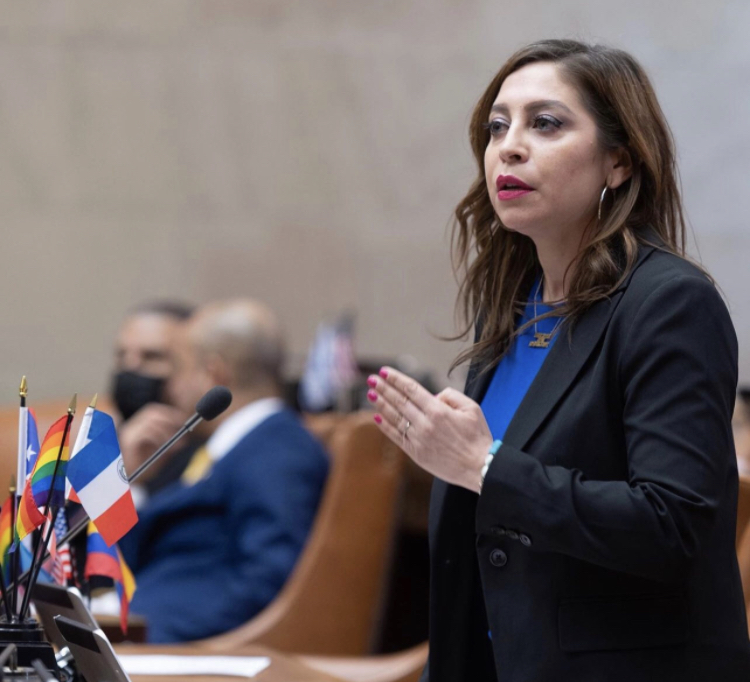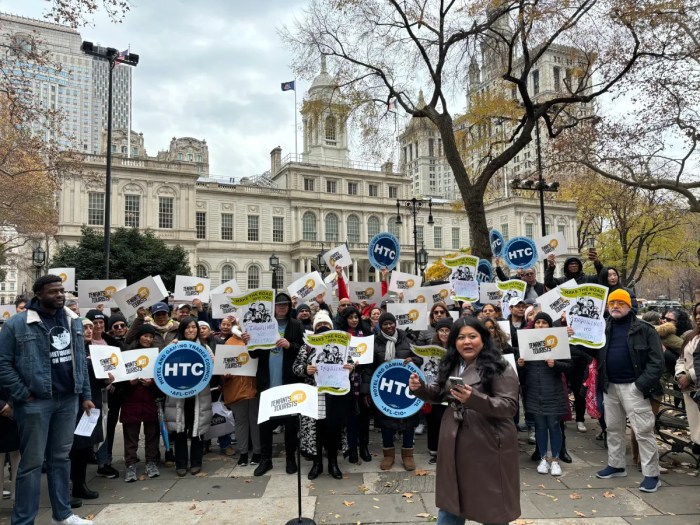Jackson Heights Assemblywoman Jessica González-Rojas announced that she is introducing a bill in the Assembly to allow Medicaid reimbursement for violence prevention programs.
The bill corresponds to Senate bill S9539, which Senator Brad Hoylman (D-Lower Manhattan) introduced in August.
In a webinar in April this year, Biden administration officials advised state leaders to use federal Medicaid dollars to cover evidence-based violence prevention programs. With the introduction of this bill, New York becomes one of a few states, including Illinois, Connecticut and California, to heed the administration’s call.
González-Rojas, who is a member of the Assembly Health Committee, is urging her colleagues in Albany to pass the “urgent bill” in the upcoming season.
“New Yorkers want to feel safe in their communities and confident that their elected officials will protect their families and loved ones. Our response as legislators to community violence shouldn’t be more punitive practices that fail to curb or prevent future violence,” González-Rojas said. “We should implement evidence-based public health solutions to what is a public health problem.”
The bill amends the social services law, in relation to the provision of and payment for violence prevention programs. Specifically, the bill allows any Medicaid beneficiary who “has received medical treatment for an injury sustained as a result of an act of community violence and has been referred by a certified or licensed health care provider or social services provider to receive community violence prevention services from a qualified violence prevention professional” to receive reimbursement for said services.
The bill also requires the New York State Department of Health to approve at least one governmental or nongovernmental accrediting body to review and approve training and certification programs within 90 days of the effective date. Community violence, particularly gun violence, is an ongoing public health crisis that disproportionately impacts communities of color nationwide and in New York. Hospital-based community violence prevention is one such effective, evidence-based tool, according to González-Rojas.
According to a University of Maryland Medical Center Study, a person with a history of violent injury is 45% more likely to be readmitted for a new violent injury within five years. The re-injury rate is reduced to 5% when hospital-based violence prevention programs are introduced, per the same study.
The legislation is supported by New Yorkers Against Gun Violence, Everytown for Gun Safety, Moms Demand Action, Giffords, the Health Alliance for Violence Intervention, Brady United and the Community Justice Action Fund.
Marie Delus, a volunteer with the New York chapter of Moms Demand Action, said gun violence is a public health crisis that must be treated with evidence-based solutions to address the root issues.
“This legislation is vital to providing wraparound care to reduce reinjury and ensure communities are equipped with sustainable and proactive solutions to combat violence. We applaud Assembly member González-Rojas for introducing this bill and hope the Assembly recognizes the urgency to pass this legislation,” Delus said.
Rebecca Fischer, executive director of New Yorkers Against Gun Violence, said community and hospital-based violence intervention programs work to interrupt cycles of violence and trauma and provide effective support services to New Yorkers who are most impacted by shootings.
“New York’s medicaid reimbursement bill will increase accessibility of violence prevention services to those who need these resources the most and is an effective tool to help address the gun violence crisis plaguing our communities,” Fischer said. “We are grateful for Assembly member Gonzalez-Rojas’s leadership and applaud her for championing this lifesaving bill.”



































